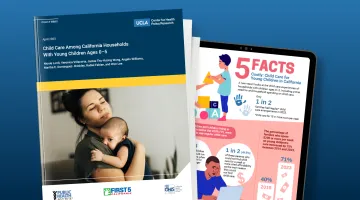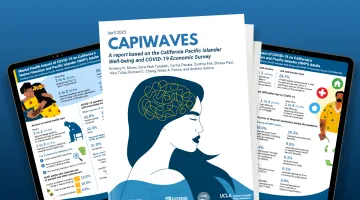Summary
This joint publication of the Center for Labor Research and Education at the University of California, Berkeley and the UCLA Center for Health Policy Research looks at The Patient Protection and Affordable Care Act's (ACA) mandate to offer premium subsidies to help eligible individuals and their families purchase insurance coverage when affordable job-based coverage is not available. However, the law is unclear on how this affordability protection is applied in those instances where self-only coverage offered by an employer is affordable but family coverage is not.
Regulations recently proposed by the Department of the Treasury would make family members ineligible for subsidized coverage in the exchange if an employee is offered affordable self-only coverage by an employer, even if family coverage is unaffordable. This could have significant financial consequences for low- and moderate- income families that fall in this gap. Using an alternative interpretation of the law could allow the entire family to enter the exchange when family coverage is unaffordable, which would broaden access to coverage. However, this option has been cited as cost prohibitive. In this brief, the authors consider a middle ground alternative that would base eligibility for the individual worker on the cost of self-only coverage, but would use the additional cost to the employee for family coverage as the basis for determining affordability and eligibility for subsidies for the remaining family members.








